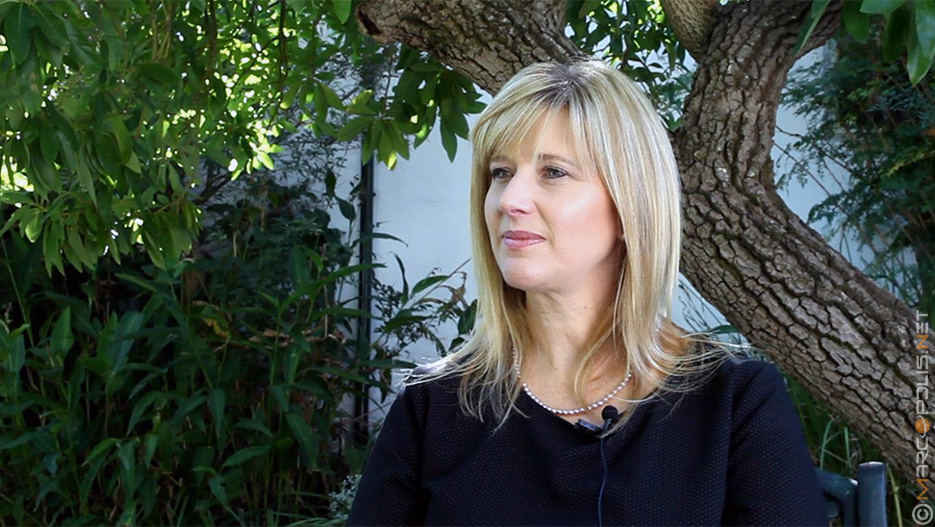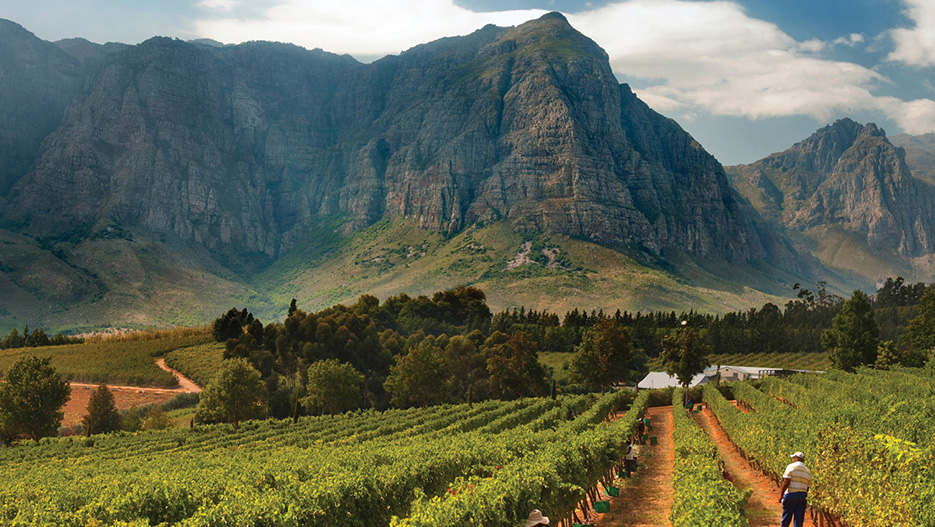Wines of South Africa (WOSA): “Variety Is in Our Nature”
Building the global success of South African wine.
Interview with Siobhan Thompson, CEO of WOSA

To start with, to what extent is there room for additional government support within the wine industry?
There’s a lot of room for more support – the funding for promoting needs assistance as well as the farmers, particularly emerging market farmers who are trying to enter into the market. They need help with setup, with land ownership as well as with marketing and growing of brands. Agriculture in general is also struggling at the moment, particularly because of natural disasters such as drought. So there is always room for more support.
What kind of communication work is WOSA carrying out in order to help South African wine to be recognized as a serious player in the global market?
Communication plays a key role in international markets. We work on a business-to-business basis, with retailers, and on-trade, conveying our uniquenesses and our strengths and uplifting the South African image of our wine-making skills, and the quality of the wine we are producing. We also run pavilions at trade shows, highlighting what South Africa has to give. This is a key role for us as it’s really important to get the trade to recognize what we have to offer and I believe South Africa is at its peak at the moment regarding our quality, our innovative style and what we are putting forward for the world.
The area we are really focusing on is growing value, as we want our higher-tier wines to break through into the international market.
To what do you attribute last year’s rise in exports of South African wines?
Exports actually spiked in 2013 because South Africa had a lot of wine to offer the world at a time when it had low supplies due to various factors such as droughts and fires. It was really a great opportunity for South Africa to have so much wine available and we did sell a lot of bulk in this year to supply the world. In 2014 volumes dropped back, but they were still higher than in 2012. Growth is not as high as we would want it to be, but at least we are showing a positive pattern. The area we are really focusing on is growing value, as we want our higher-tier wines to break through into the international market.
To what extent is the heart of WOSA’s strategy to focus on building market share for higher-value wines, particularly in the emerging markets?
Our strategy is to go into these markets and highlight these higher-tier wines, showing the unique styles and varietals we have to offer. One area where we are really doing well is our white and red blends, Chenin is making its mark too, we have the highest Chenin plantings in the world, even more than the Loire, and our Chenins are really fantastic. The idea is to showcase that. And it’s very important to work with the trade and get consumers to visit our country, because we have amazing wine tourism offerings. When tourists come here they get exposed to what we have to offer, both the high level and exclusiveness of our wines. Along with the environment we create that experience of providing accommodation, getting to taste the wines and also all the entertainment. Having had that experience, they then go back and become natural ambassadors, saying to everyone “Let me tell you about South Africa, they have this wine, it’s fantastic!” Tourists also take back their memories of the country and are more open to listing those wines. That’s always important.

Companies, a lot of them Capetonian, such as Shoprite, Pick n Pay, Woolworths etc. have all expanded within Africa. Are you hoping that local wine producers will benefit from the increasing footprint of the South African retailers on the continent, and will this have any kind of impact on growing new markets for local producers?
Most definitely. The WOSA South African team are already working with that advantage and collaborating with Shoprite in Angola, for example. They will automatically start carrying South African lines. That’s not to say they won’t incorporate lines that are big in their country, but there is an added benefit because of their buying structures and their propensity to support South Africa. So the more we see South African institutions spread out on the African continent, the more we’ll benefit. It also helps us in terms of what we call working together as Brand South Africa. We form partnerships not only with the retail trade but also institutions like Standard Bank, SAA and hotel groups as well, which enables us to be more powerful. We all have limited funds to promote South Africa, but where we join hands together to promote, we become excellent. It’s exactly the same with Woolworths and Shoprite, they speak from a South African point of view and help encourage South African brands.
Do you believe South Africa can move towards selling wine in bulk and bottling and labelling at destination?
That’s a question which is constantly debated. It’s not a case of “Can South Africa move?” because South Africa always has been in bulk, bulk which is used for bottling branded products offshore as well as supplying South African labelled products or which is used for going into another country’s product. What is important is to get a better balance between bulk and packaged goods. I mentioned that we had a spike in bulk in 2013 sales, and there were reasons for that, namely a glut. We need now to return to a more normal and profitable level. There’s always more profit in packaged goods leaving South Africa, for numerous reasons. One is that you’re creating jobs and more value in South Africa and that then leaves the shore with bulk. While I would never say that bulk is not good for South Africa, what is important is how it is sold and the price that is realized for it. South Africa needs to get better margins for its wines, whether it’s in packaged or in bulk.
What can be done to boost the consumption of South African wines elsewhere in Africa?
It’s really about education. There are a lot of very unknowledgeable future consumers on the African continent who are being uplifted by the spend. They now have more money in their pockets and are looking at exploring different categories and what I call “badge-appeal” or status products. This creates a huge opportunity for wine. However, wine can be intimidating. It’s a category people may not have a lot of knowledge about, it may not necessarily be made in their country. Beer, for instance, may be brewed in their country, but wine isn’t produced there, although there are certain African countries which are starting to do so. So it’s all about education, it’s about getting into the market and educating consumers and retail trade about wine, what it is at a basic level, and spreading the word that South Africa produces wine and has top-quality wines to offer. So work needs to be done in exposing both retail and the consumer to our wine.
How important are considerations of ethical trade and environmental sustainability?
They are absolutely critical, not only for South Africa. This is a global aspect which is becoming more and more important for all products, not only wine. South Africa has been at the forefront of environment sustainability. We’ve looked at our conservation efforts and have been incorporating them for many years into our vineyards and we’ve been very successful at that. Ethical trade is also very important. South Africa’s past unfortunately puts a spotlight on us and we’ve taken that very seriously. We have the Wine Ethical Trade Association, known as WIETA, which is a South African industry initiative. It incorporates a code of conduct and practice for the wine industry, above and beyond certain levels which have already been legislated, as well as dealing with working conditions, health conditions, pay and other aspects. The idea is to show that we take ethical trade seriously and that we are governing ourselves, so there is no need for an outside organization to step in and take over that role.
To what extent have the labour issues and strikes which have occurred in the industry affected you? Has that developed into a reputational challenge?
We have had times where it was exceptionally difficult. Three or four years ago there were some strikes but they weren’t directly related to the wine industry, more to agriculture in general, so they weren’t wine focussed. What we have found is that the Wine Ethical Trade Association has actually put an end to a lot of these difficulties, because we are paying attention to them and looking at negotiations. WIETA is a round table initiative where we have civil society and labour involved, they are co-owners in it, and as a result we are seeing a lot less of that unrest happening. So these matters aren’t hampering the industry, on the contrary, they have really helped us to work together and to try and solve problems before they become major issues.
And lastly what about the depreciation of the currency? How can the Western Cape wine tourism industry capitalize on that and realize its potential with vastly inflated visitor numbers coming here?
When people talk about the rand devaluation there’s a lot of doom and gloom, but actually it’s a hugely positive aspect for wine tourism and wine exports and a tremendous opportunity we can capitalize on now. I was talking to some of the wine estates about their visitor numbers over December and January and there has been a massive spike. We have fantastic value, world-class wine tourism offerings, with accommodation, wine-tasting and entertainment all in the same place. You don’t get that very often. Visitor numbers rise as they see what we have to offer and realize what good value they are getting. Take the British pound. With 23-24 rand for a pound it’s almost a free holiday. I have heard a lot of stories about people coming over for a week and they have enjoyed themselves so much and it’s been so cost-effective that they’ve stayed another week, for instance. We have an industry we can be proud of and it’s something we really need to push and capitalize on.
FAIR USE POLICY
This material (including media content) may not be published, broadcasted, rewritten, or redistributed. However, linking directly to the page (including the source, i.e. Marcopolis.net) is permitted and encouraged.